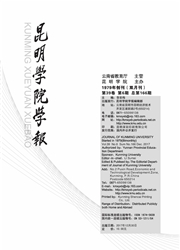

 中文摘要:
中文摘要:
以热激因子AtHsfA1a不同基因型(野生型、基因突变型)的拟南芥为材料,PEG处理后采用分光光度法测定Caspase-3酶活性,结果发现渗透胁迫处理后拟南芥Caspase-3酶活性明显增强,而科ia基因突变型拟南芥类Caspase-3酶活性比野生型拟南芥的高,说明渗透胁迫下拟南芥AtHsfA1a能够抑制Caspase-3蛋白酶的活性.为了从分子水平进一步鉴定AtHsfA1a与Caspase-3蛋白酶的关系,采用染色质免疫沉淀技术和凝胶阻滞电泳体内外分析AtHsfA1a与Caspase-3酶的关系,结果显示AtHsfA1a在体内外与Caspase-3蛋白酶的启动子片段均有结合.研究结果初步表明,渗透胁迫下拟南芥热激因子AtHsfA1a通过对Caspase-3蛋白酶表达的调控而对细胞程序性死亡有一定的抑制作用,这对揭示植物耐逆境反应机理具有重要意义.
 英文摘要:
英文摘要:
The different gene type of Arabidopsis thaliana heat shock factor AtHsfA1a ( the wild type and AtHsfA1a gene mutant type) were used as materials. After PEG treatment, activity of Caspase-3 enzyme was determinated by using spectrophotometric method. The results found that activity of Caspase-3 enzyme significantly enhanced after PEG treatment, and caspase-3 enzyme activity of Arabidopsis thaliana in gene mutant type was higher than that of the wild type Arabidopsis under osmotic stress, showing Arabidopsis AtHsfA1a can inhibit the activity of Caspase-3 under osmotic stress. In order to reveal regulatory effect of AtHsfAla on Caspase-3 at molecular level, the binding of AtHsfA1a to the promoter region of Caspase-3 was investigated by using chromatin immunoprecipitation and electrophoretic mobility shift assay. The results showed that the binding of AtHsfAla to the promoter regions of Caspase-3 at different degrees existed in vivo or in vitro. These indicated that AtHsfAla inhibited programmed cell death by inhibiting the expression of Caspase-3 , which was important and useful for revealing the mechanism of stress resistance in plant.
 同期刊论文项目
同期刊论文项目
 同项目期刊论文
同项目期刊论文
 期刊信息
期刊信息
